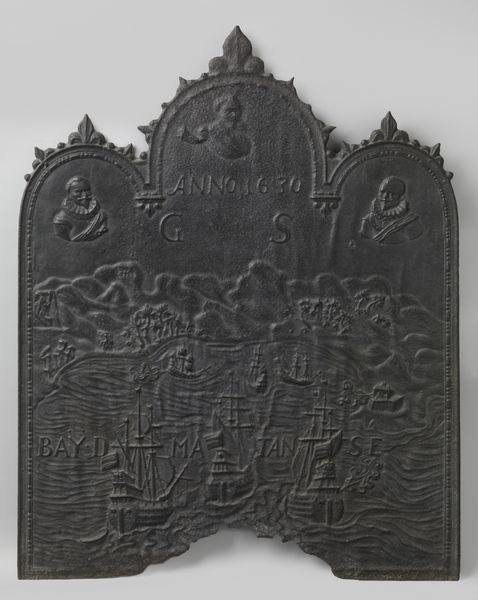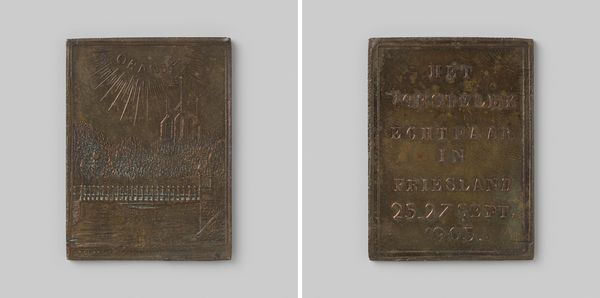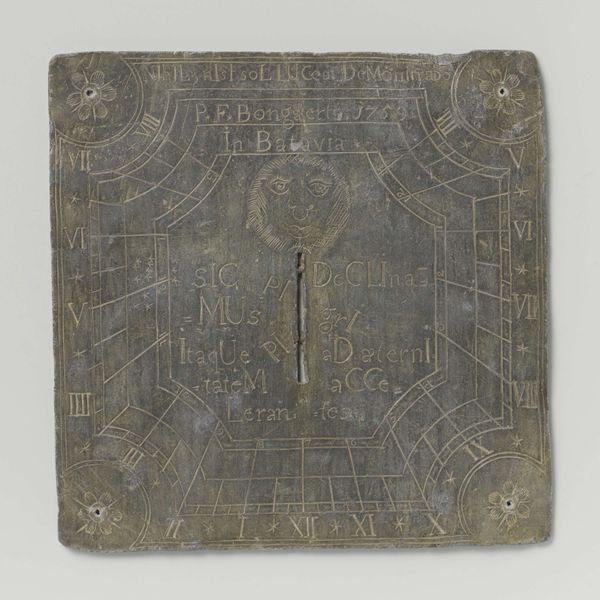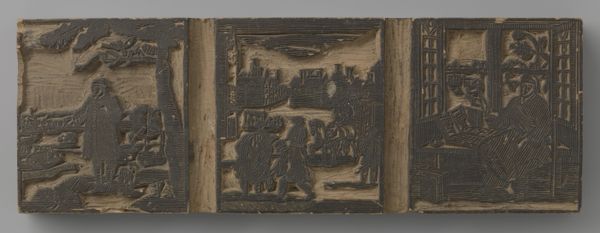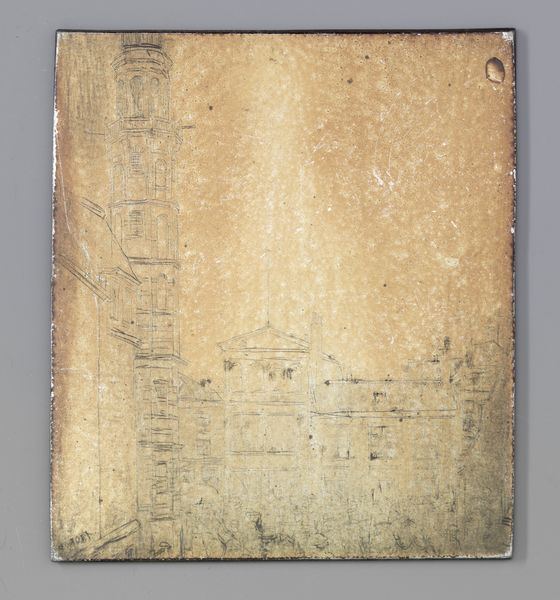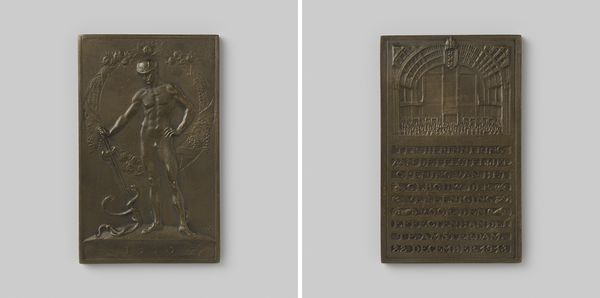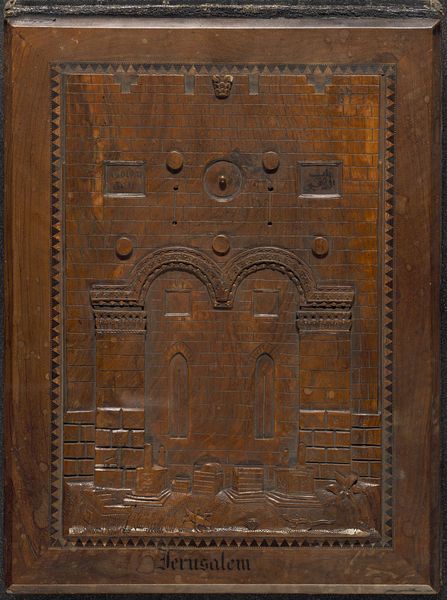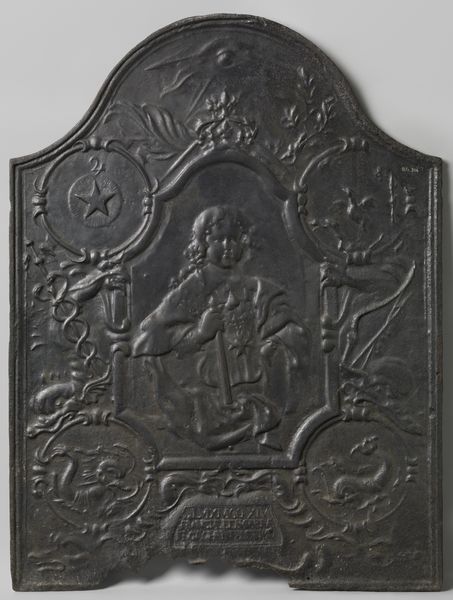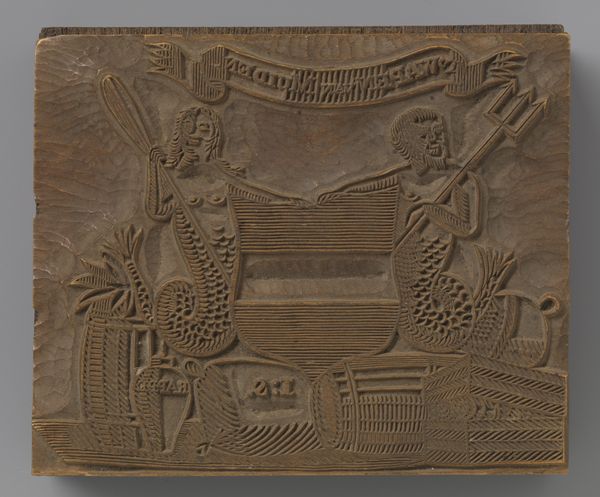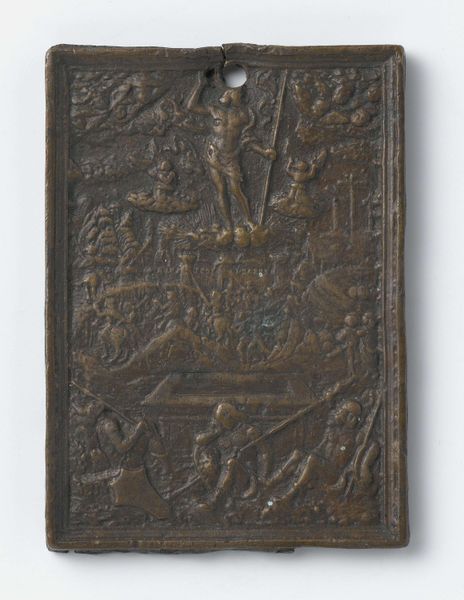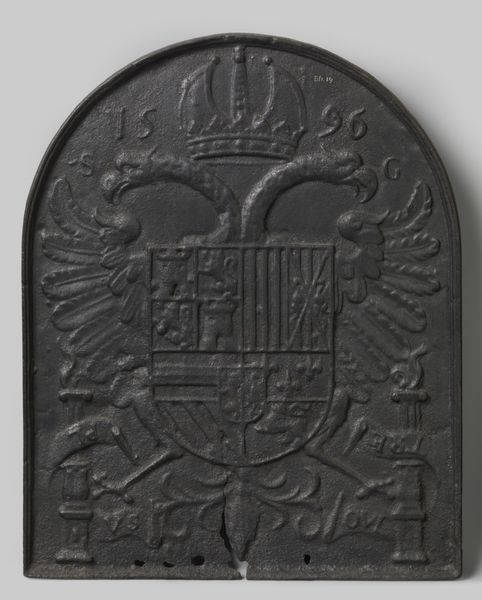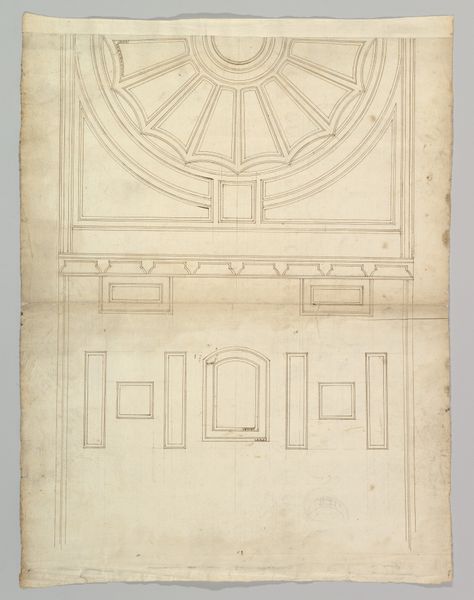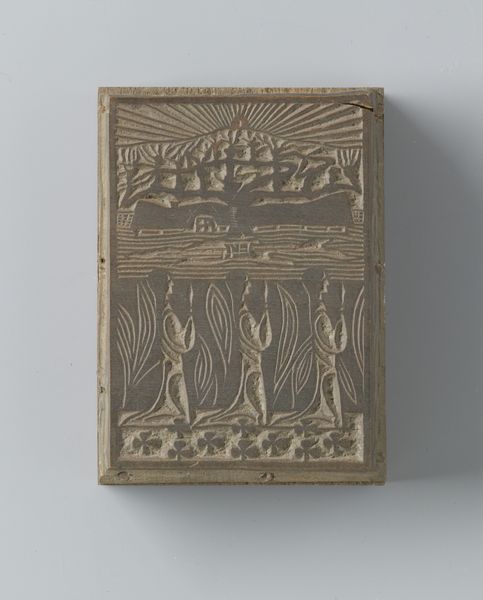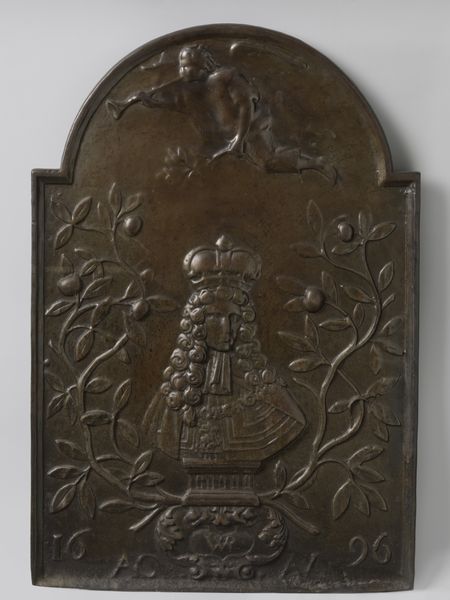
drawing, graphic-art, print, metal, etching, relief, engraving
#
drawing
#
graphic-art
#
art-nouveau
# print
#
metal
#
etching
#
sculpture
#
relief
#
symbolism
#
engraving
Dimensions: height 97 mm, width 70 mm
Copyright: Rijks Museum: Open Domain
Curator: This metal plate, known as "Ex libris van E.W. Moes," dates from the period of 1893 to 1902, and it's attributed to Antoon Derkinderen. The primary mediums appear to be etching and engraving. It's striking how much detail is captured in this relief. Editor: It’s a heavy piece, in multiple senses of the word. There is a somber, even grave, quality about it; everything from the muted grey tonality to the solemn figures carved on the plate contributes to a sense of serious introspection, an air of Victorian melodrama. Curator: Indeed. Looking closely, one observes the balanced symmetry and strong verticals and horizontals – a grid-like structure upon which Derkinderen builds symbolic content reminiscent of the Art Nouveau and Symbolist styles so prevalent at the time. The materiality lends a sort of stoic rigidity that is very compelling here. Editor: Right, I can see it. Speaking of content, doesn’t this feel allegorical? The figure to the left seems cloaked in sorrow, hunched before a symbolic scene. Considering the era, are we possibly viewing a veiled critique of societal structures or perhaps the artist expressing themes of personal loss and melancholy, or anxieties around class? This seems rooted in turn-of-the-century existentialism, with heavy emphasis on themes of identity and meaning, no? Curator: Certainly the piece invites symbolic interpretation. But I wonder, could we also simply appreciate the formal sophistication with which the artist integrates textual elements with figuration, playing with the balance between positive and negative space within that clearly-defined rectangle? It displays, at once, the rigidity of its execution as a plate while managing complex depths. Editor: And what about accessibility? How do the somber mood and esoteric imagery impact the way an audience engages with this "bookplate" today? Does it, in its own way, perhaps mirror how complex the experience of being human and making contact really is for all? Curator: You certainly pull out the big questions. Perhaps the beauty of such a multi-layered object is its potential for varied, valid interpretations. Editor: Perhaps, or perhaps not, but the real fun lives in that act of trying!
Comments
No comments
Be the first to comment and join the conversation on the ultimate creative platform.
